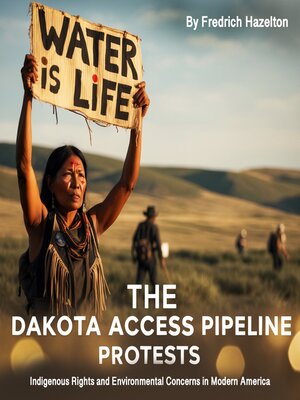The Dakota Access Pipeline Protests
audiobook (Unabridged) ∣ Indigenous Rights and Environmental Concerns in Modern America
By Fredrich Hazelton

Sign up to save your library
With an OverDrive account, you can save your favorite libraries for at-a-glance information about availability. Find out more about OverDrive accounts.
Find this title in Libby, the library reading app by OverDrive.



Search for a digital library with this title
Title found at these libraries:
| Library Name | Distance |
|---|---|
| Loading... |
The Dakota Access Pipeline (DAPL) protests were a defining moment in the intersection of environmental advocacy and Indigenous rights. Proposed to transport crude oil from the Bakken oil fields in North Dakota to Illinois, the pipeline's route crossed sacred lands and the Missouri River, threatening water supplies and cultural heritage. While its proponents touted economic benefits and energy security, the project drew fierce resistance from the Standing Rock Sioux Tribe and their allies, sparking a global movement.
At its core, the DAPL protests highlighted long-standing issues of environmental justice and the marginalization of Indigenous peoples in America. For centuries, Native American communities have faced the erosion of their sovereignty and disregard for their land rights. The pipeline's route through unceded treaty lands underscored systemic failures to honor agreements and protect sacred sites. Moreover, it served as a stark reminder of the broader environmental challenges tied to fossil fuel dependence and its impact on climate change.
The Standing Rock protests grew into a powerful grassroots campaign that united activists, environmentalists, and Indigenous groups from around the world. The movement's significance lay not only in its immediate objectives—stopping the pipeline—but also in its ability to bring visibility to Indigenous struggles and inspire global solidarity. Social media played an instrumental role in amplifying the protests, creating a platform for underrepresented voices and rallying international support.







